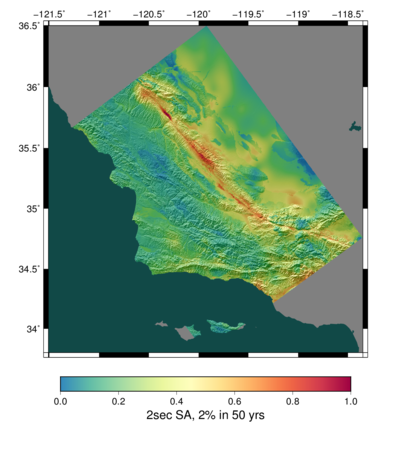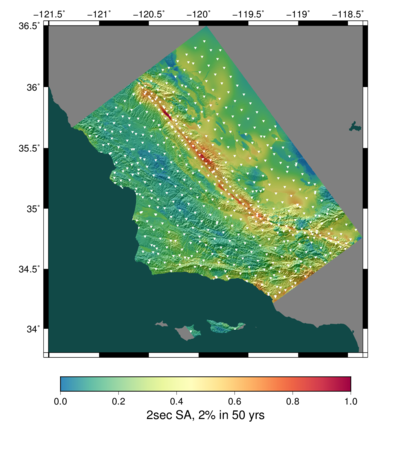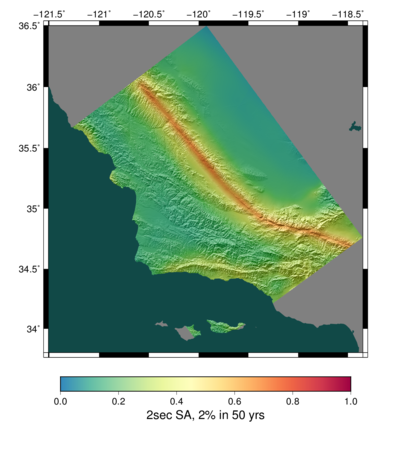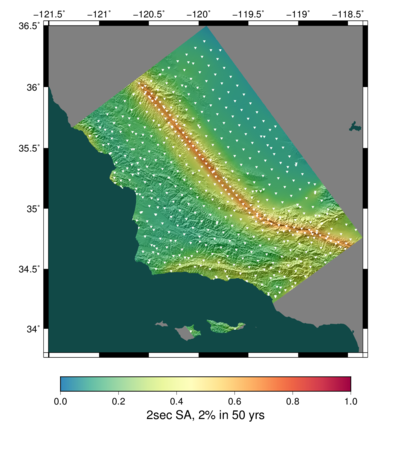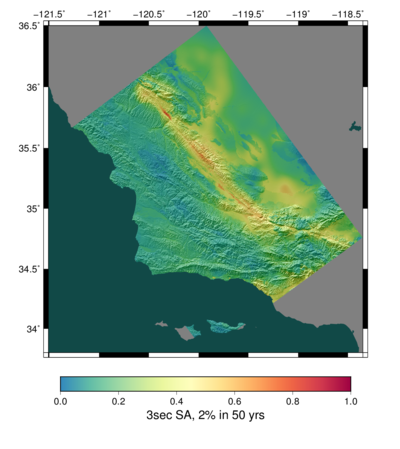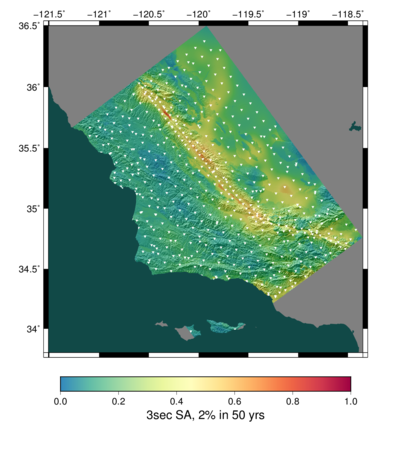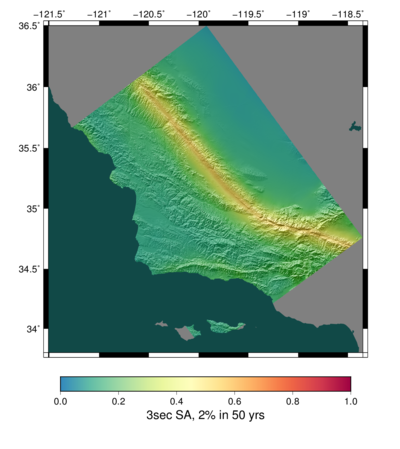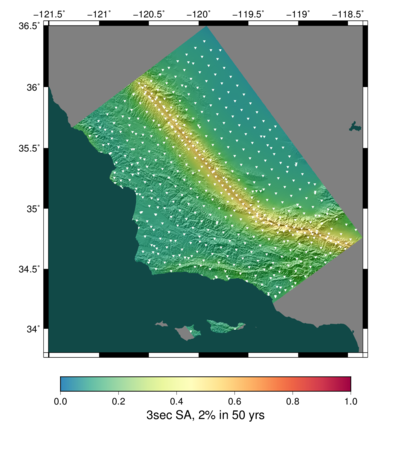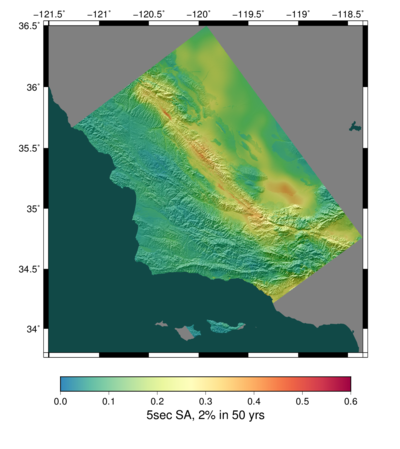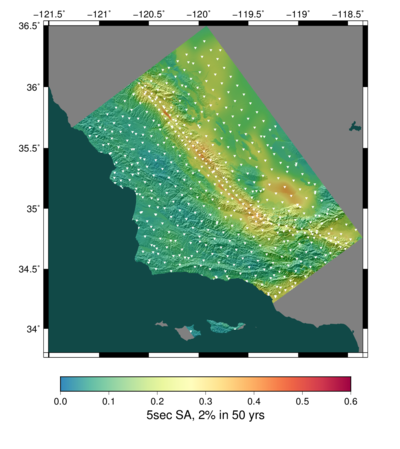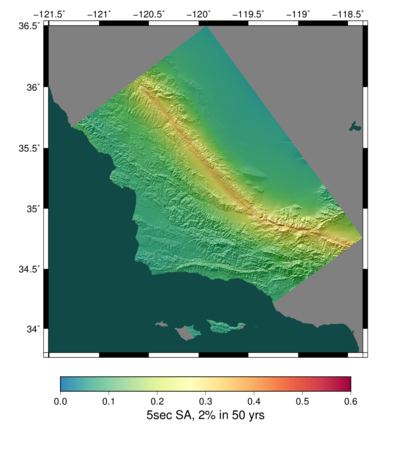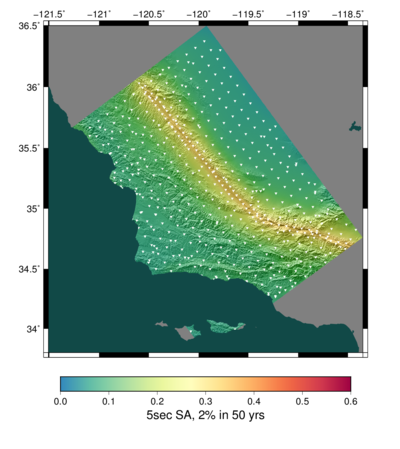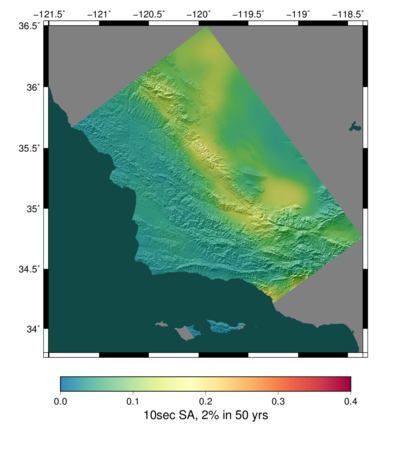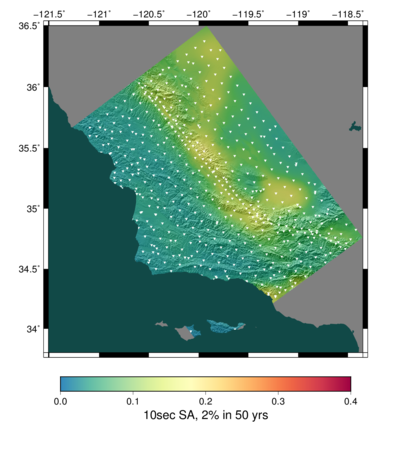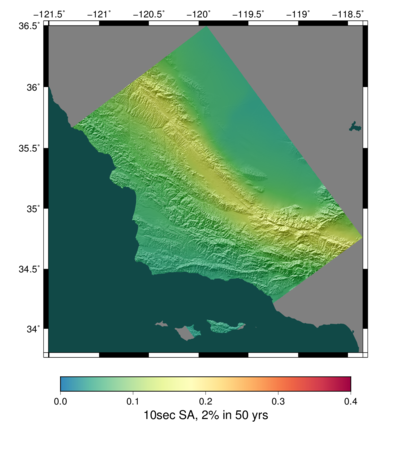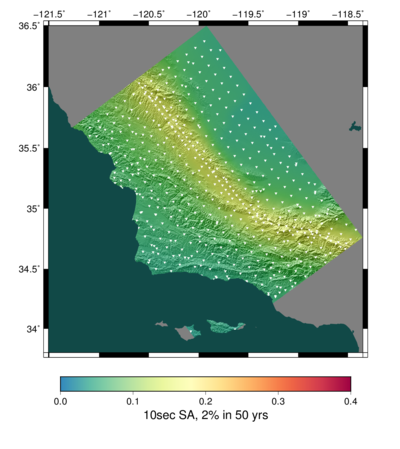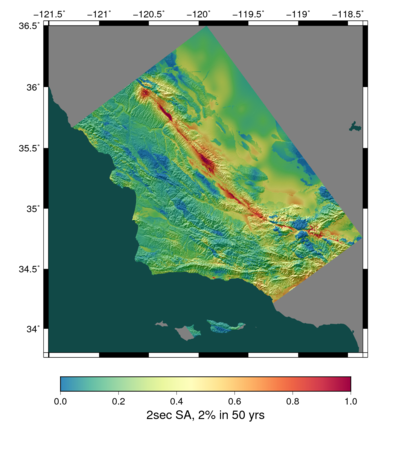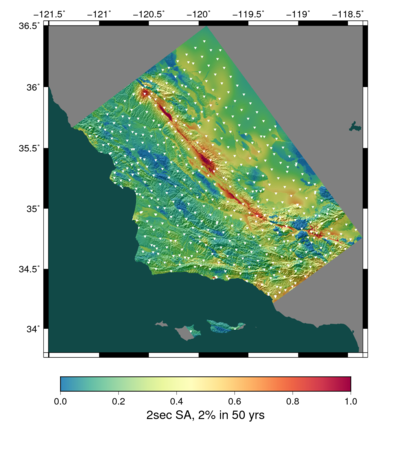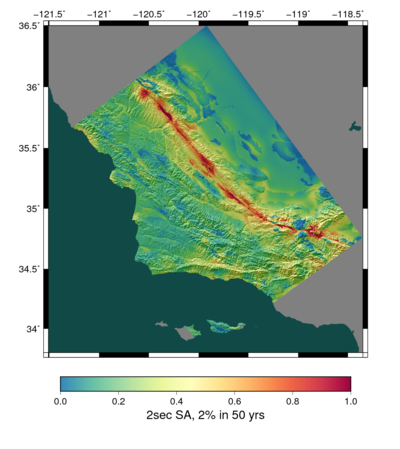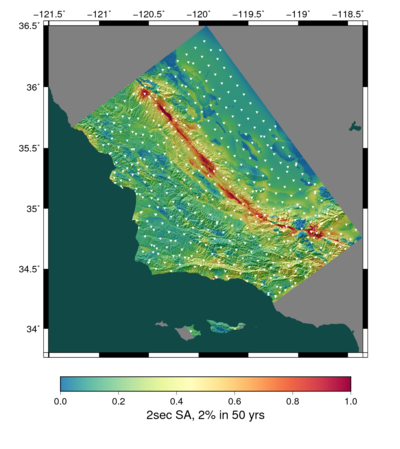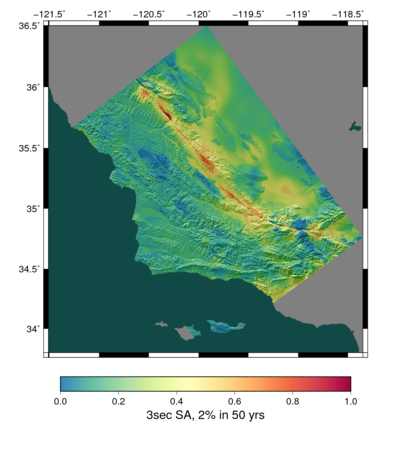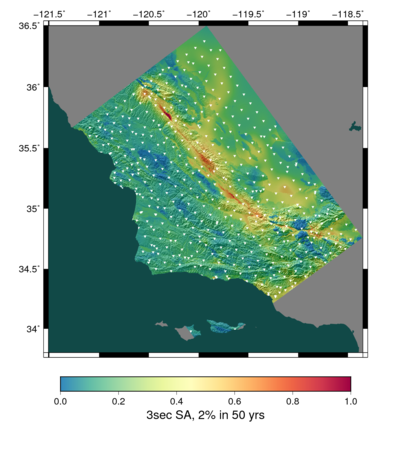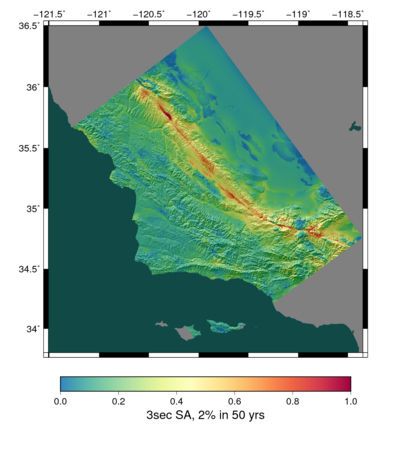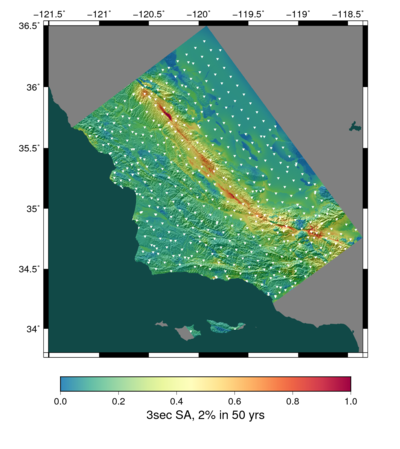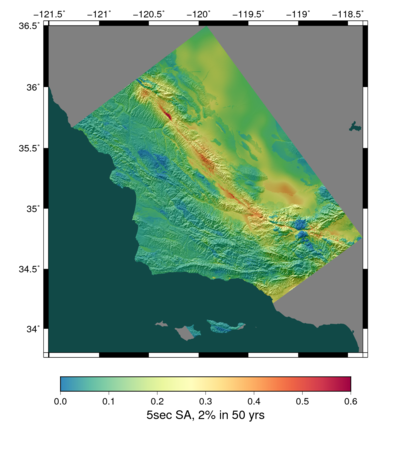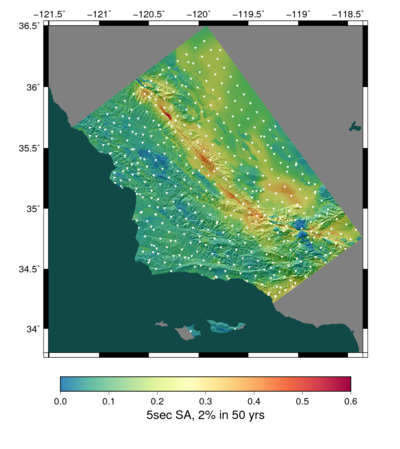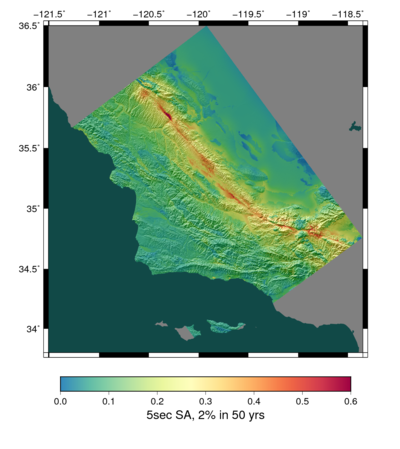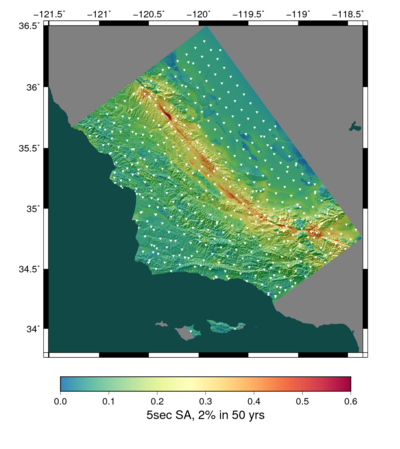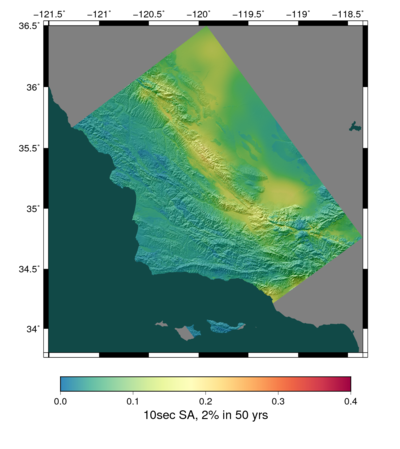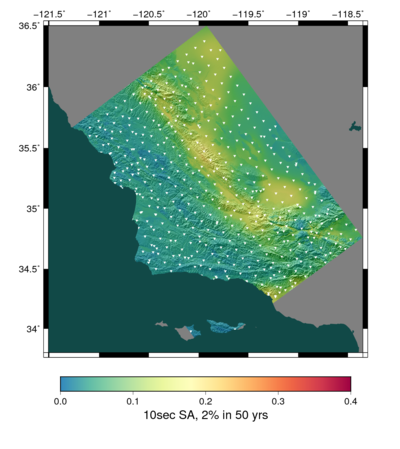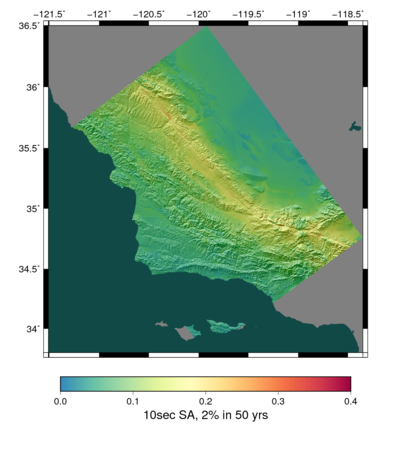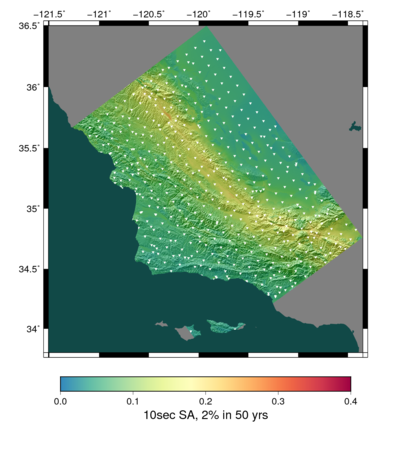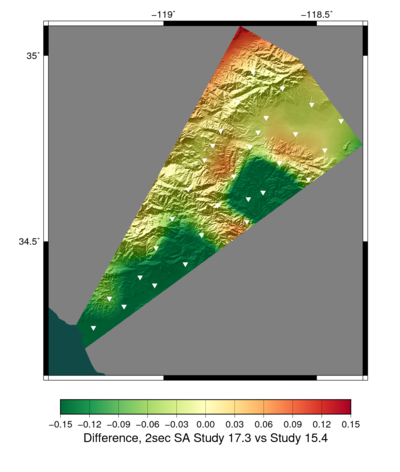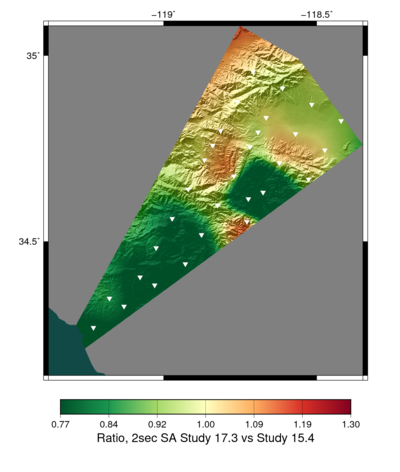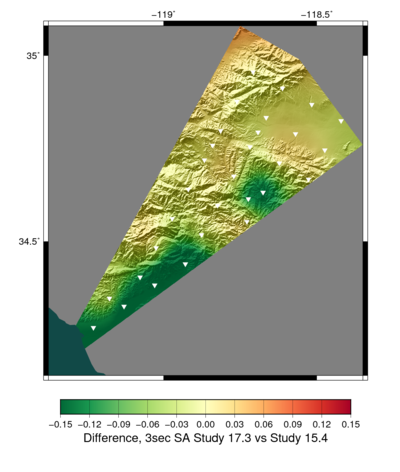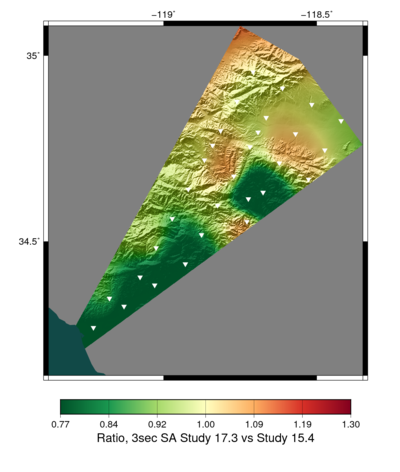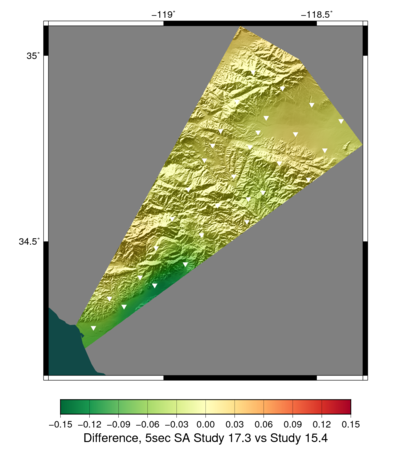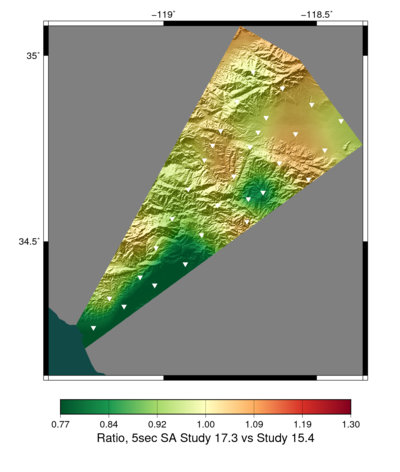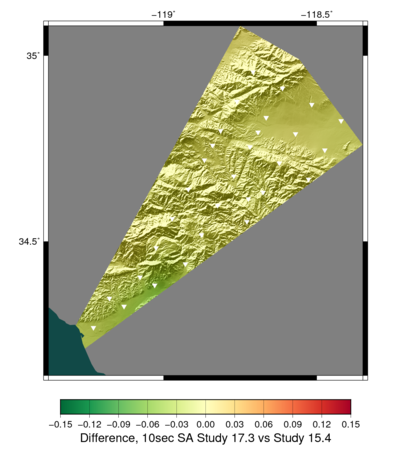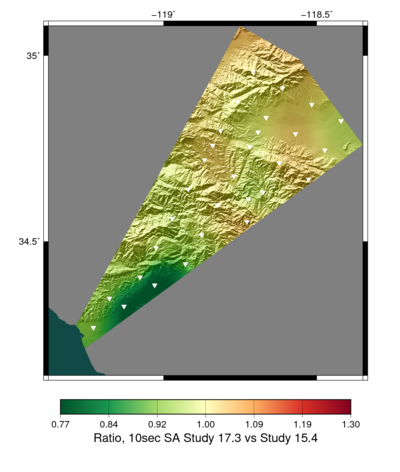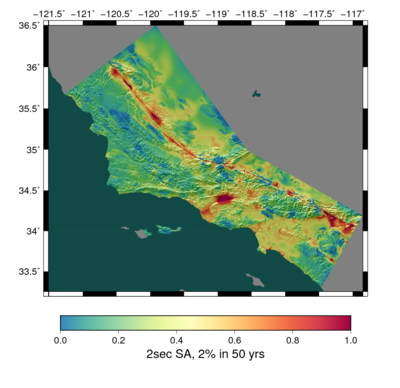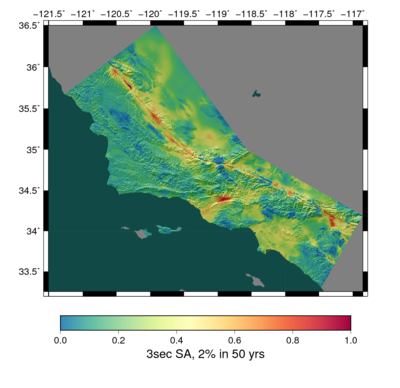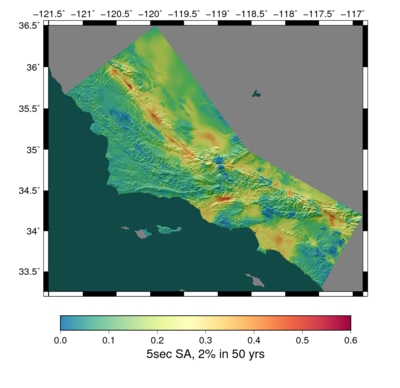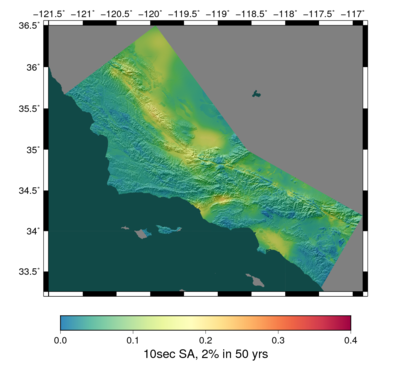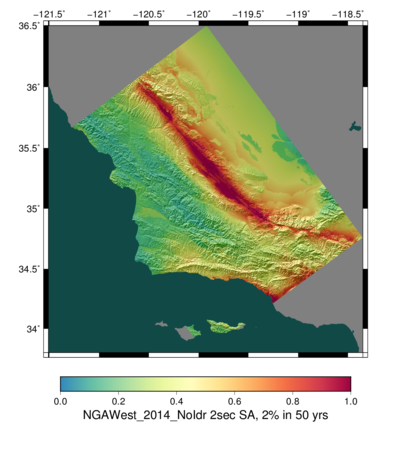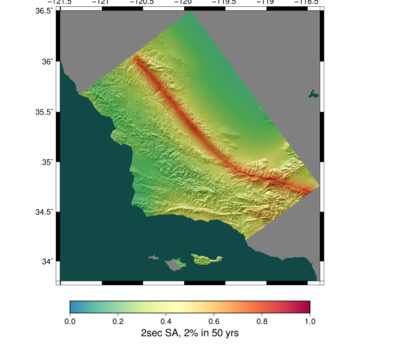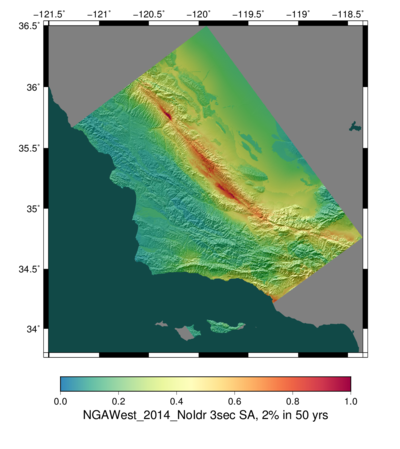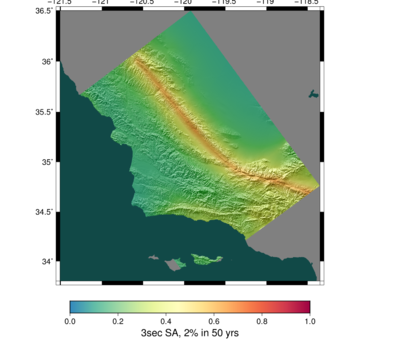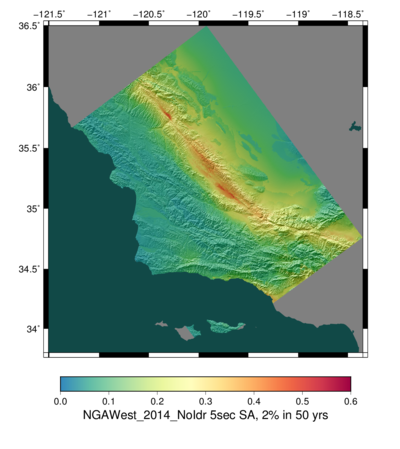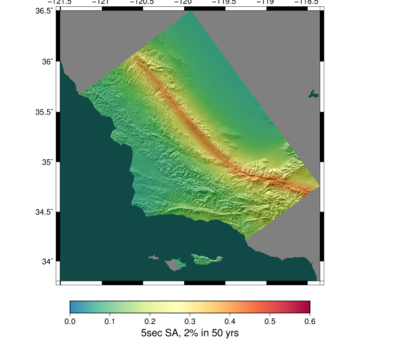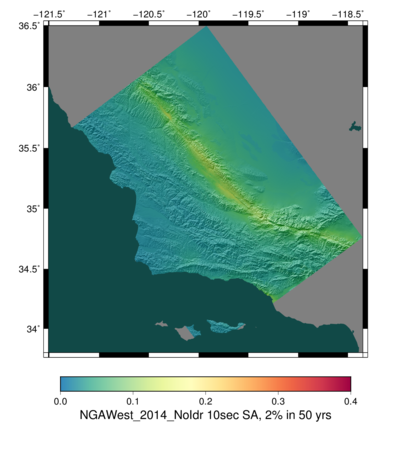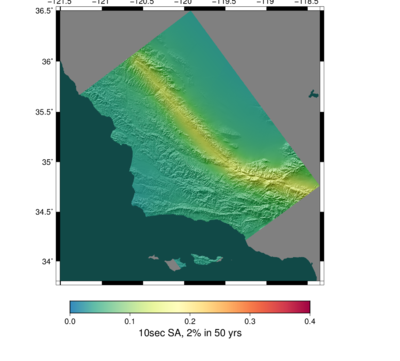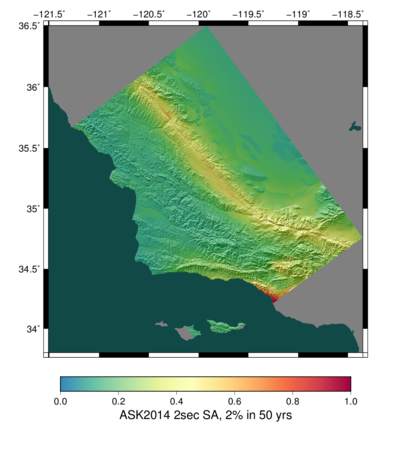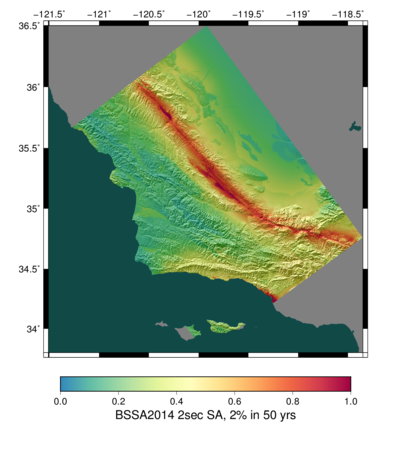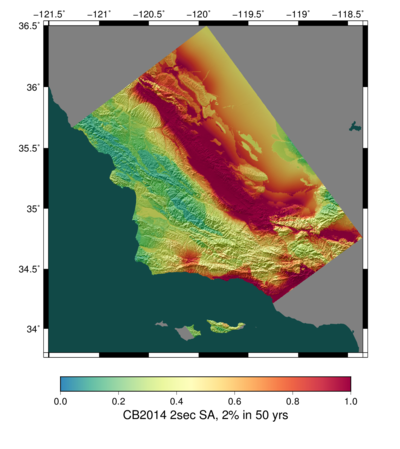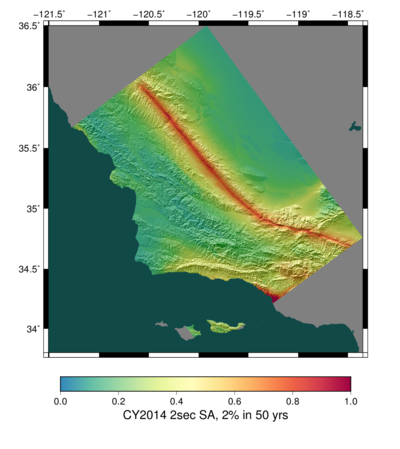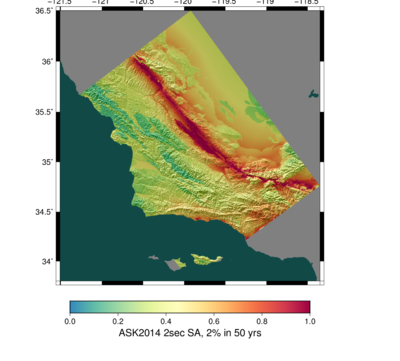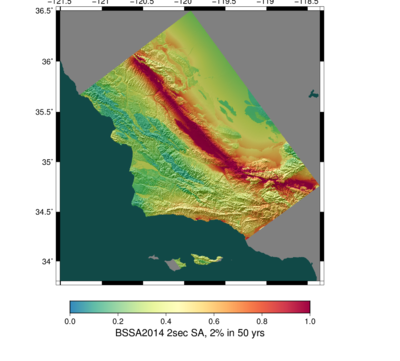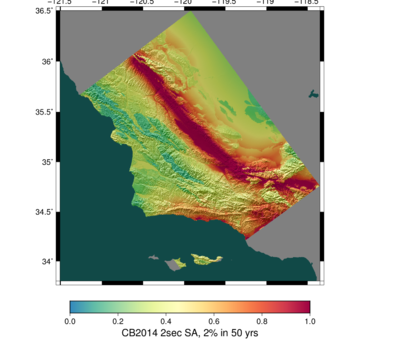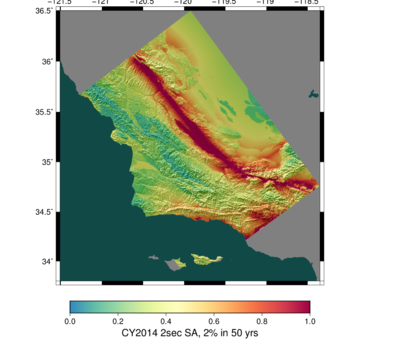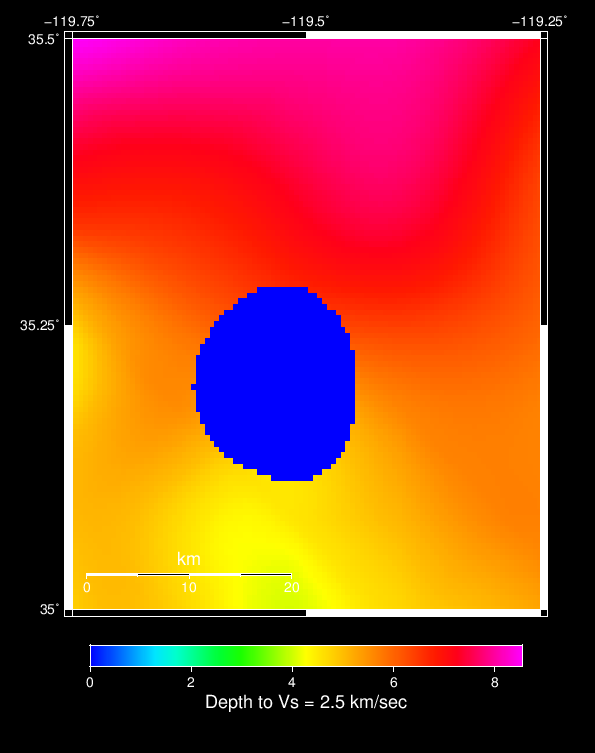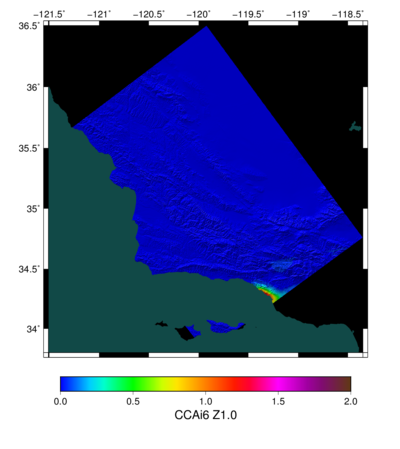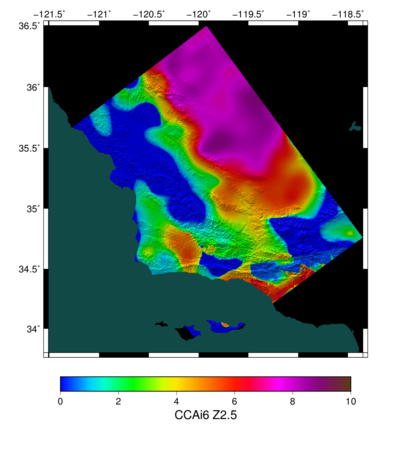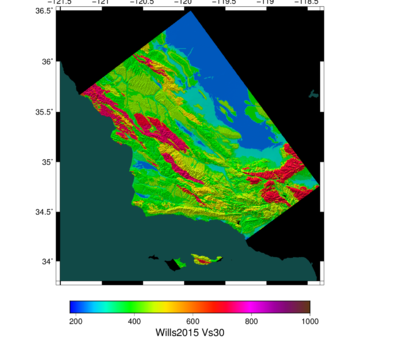Study 17.3 Data Products
Below are data products from CyberShake Study 17.3.
Contents
Hazard Maps
Basic Hazard Maps, additional sites
Below are hazard maps produced with the 438 Study 17.3 sites + an additional 52 sites in Study 17.3b.
| CCA-06 | CCA-06 with sites | CCA 1D | CCA 1D with sites | |
|---|---|---|---|---|
| 2 sec RotD50 | ||||
| 3 sec RotD50 | ||||
| 5 sec RotD50 | ||||
| 10 sec RotD50 |
Basic Hazard Maps
| CCA-06 | CCA-06 with sites | CCA 1D | CCA 1D with sites | |
|---|---|---|---|---|
| 2 sec RotD50 | ||||
| 3 sec RotD50 | ||||
| 5 sec RotD50 | ||||
| 10 sec RotD50 |
Overlapping Region
Below are difference and ratio plots, comparing the Study 17.3 and the Study 15.4 results. Warm colors mean that Study 17.3 results are higher, cool are lower.
In general, the Study 17.3 results are lower. The CVM-S4.26 and CCA-06 models are similar in this region, but in Study 17.3 we do not have a GTL and we apply a minimum Vs of 900 m/s, whereas in Study 15.4 we had a GTL and the minimum Vs was 500 m/s. This likely explains the difference.
| Period | Difference | Ratio |
|---|---|---|
| 2 sec | ||
| 3 sec | ||
| 5 sec | ||
| 10 sec |
Combined Maps
These combined maps were produced by combining RotD50 results from Study 15.4 (LA, CVM-S4.26) and Study 17.3 (Central CA, CCA-06). In the small overlap region between the CCA and LA CyberShake regions, values at sites in both studies were averaged with equal weight. Additionally, these maps use the Vs30 only basemap (not Z1.0 or Z2.5). Note that the scale changes depending on the map.
| 2 sec | |
|---|---|
| 3 sec | |
| 5 sec | |
| 10 sec |
NGA-2 Basemaps
| 3D basemap | 1D basemap | |
|---|---|---|
| 2 sec | ||
| 3 sec | ||
| 5 sec | ||
| 10 sec |
Individual Basemaps
Below are 2 second basemaps for each NGA-2 individually.
| ASK 2014 | BSSA 2014 | CB 2014 | CY 2016 | |
|---|---|---|---|---|
| Basin Effects & Vs30 | ||||
| Vs30 Only |
Ellipse Coldspot
The 'coldspot' (lower hazard) which appears around (35.2, -119.5) is due to the velocity model, likely an artifact from CVM-S4's rule-based approach. Below is a plot of Z2.5 around the hotspot:
